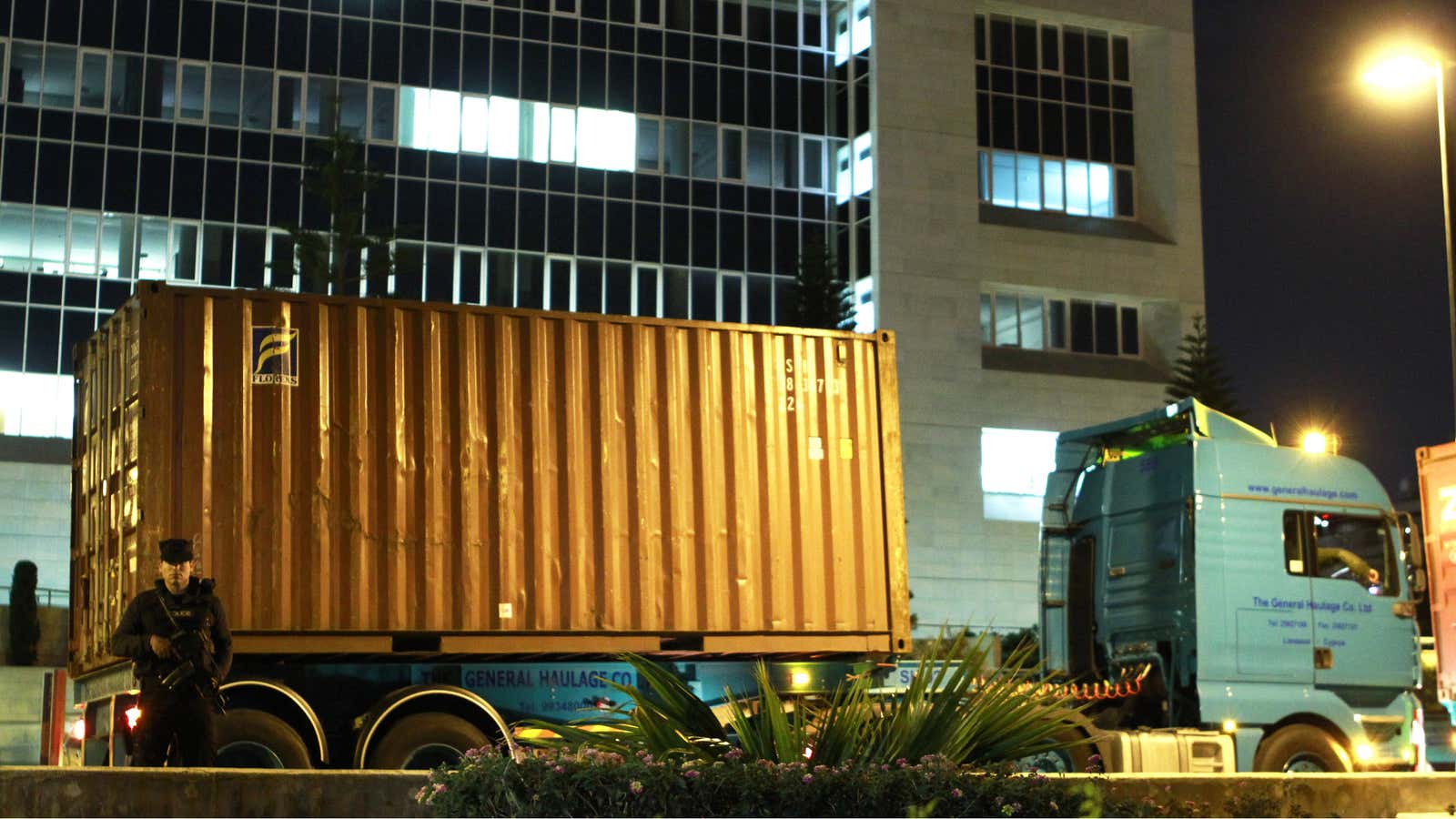Updated 10:05 GMT
The Cypriot capital of Nicosia resembled the set of a Hollywood heist film this morning. Hours before banks re-opened in Cyprus, the city was swarming with helicopters and heavily armed police, as container trucks full of euros were ferried to branch offices that had been closed for 10 days.
The banks re-opened at noon Cyprus time (10 am GMT, 6 am ET) under strict capital controls designed to prevent an exodus of cash that would undo the work of eurozone policymakers and the IMF, who signed a bailout deal with Cyprus on Sunday evening. Customers will be limited to 300 euros a day in cash withdrawals, and cash checking will be banned. The Cyprus central bank will review all commercial transactions over 5,000 euros and individual transactions of 200,000 euros or more; people leaving Cyprus can take no more than 3,000 euros with them.
The scenes outside banks was mostly quiet, with reporters outnumbering customers in many cases. Wall Street Journal/Dow Jones reporter Matina Stevis tweeted: “Hack to old lady: ‘are you tying to get money out?’ Old lady to hack: ‘it’s none of your business.'”
It is unclear how long the capital controls will stay in place. Critics of the bailout deal have argued that they will have to be kept for months or even years. Reuters’ Ben Walsh notes that capital controls imposed in Iceland during the financial crisis are still in effect after seven years, and could last another three.
Even after the cash is delivered, Cyprus might want to keep those police mobilized: a public wave of anger about the bailout and capital controls is swelling, especially since it looks like many well-heeled foreign depositors got their cash out of the country before or even during the banking shut-down.
The Bank of Cyprus and Laiki, the troubled Cypriot bank which will be effectively shut down under the bailout, both kept their London branches open during the 10 days that domestic banking was halted. The Cypriot parliament is investigating suspicious capital flight that occurred just before an initial bailout package was signed on March 16. And brokers in New York report that well-heeled Russians have been siphoning their money out of Cyprus for months and re-routing it into expensive Manhattan real estate, according to the Guardian.
Meanwhile, back in Cyprus, there was a lot of cash in transit on the street in the dawn hours. In addition to helicopters and police, CNBC reports that security firm G4S was on hand with 35 armored vehicles. For an ambitious criminal, it must have been sorely tempting to try for an historically massive bank robbery—not counting the one that may have already taken place behind closed doors.
